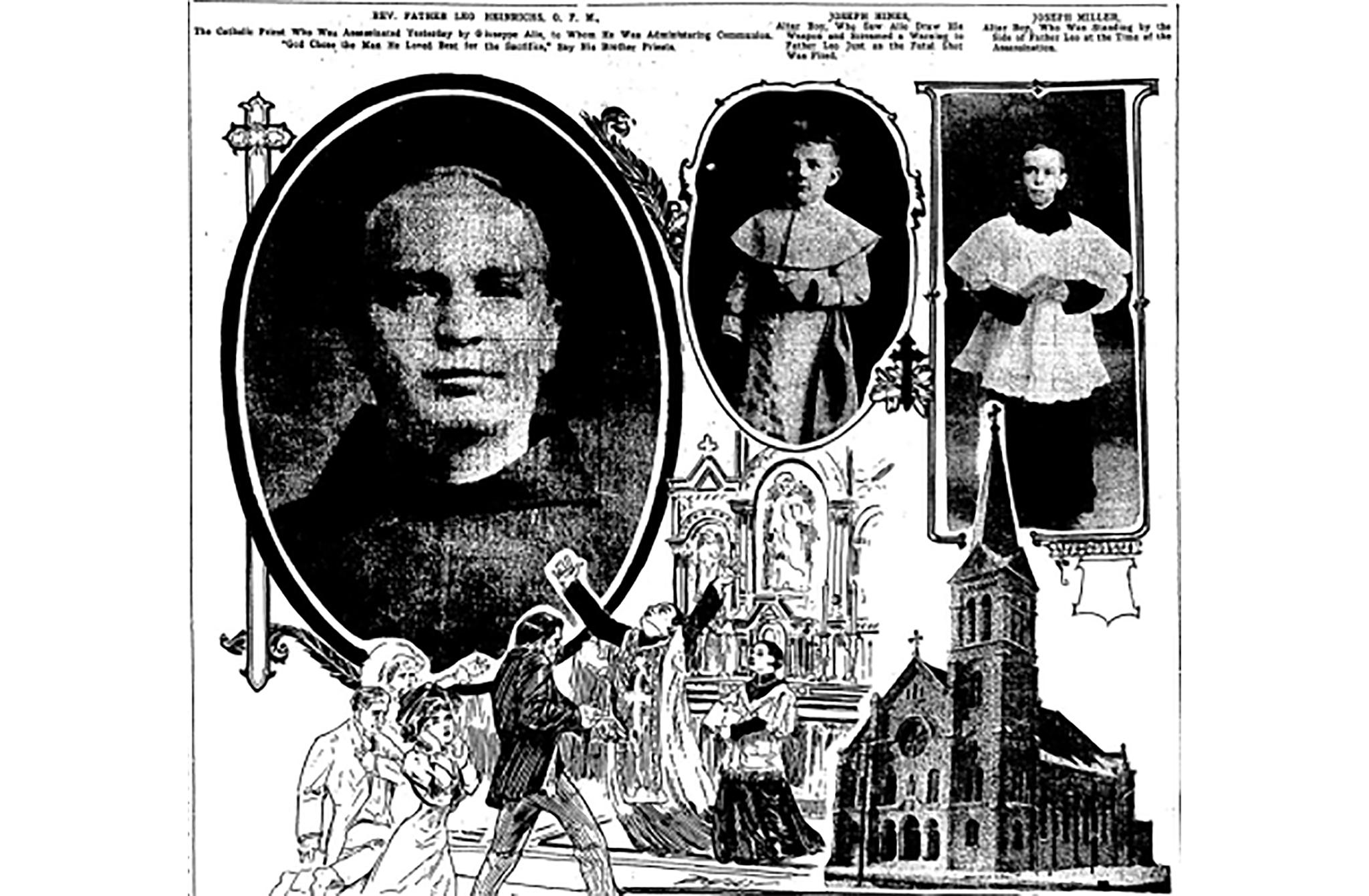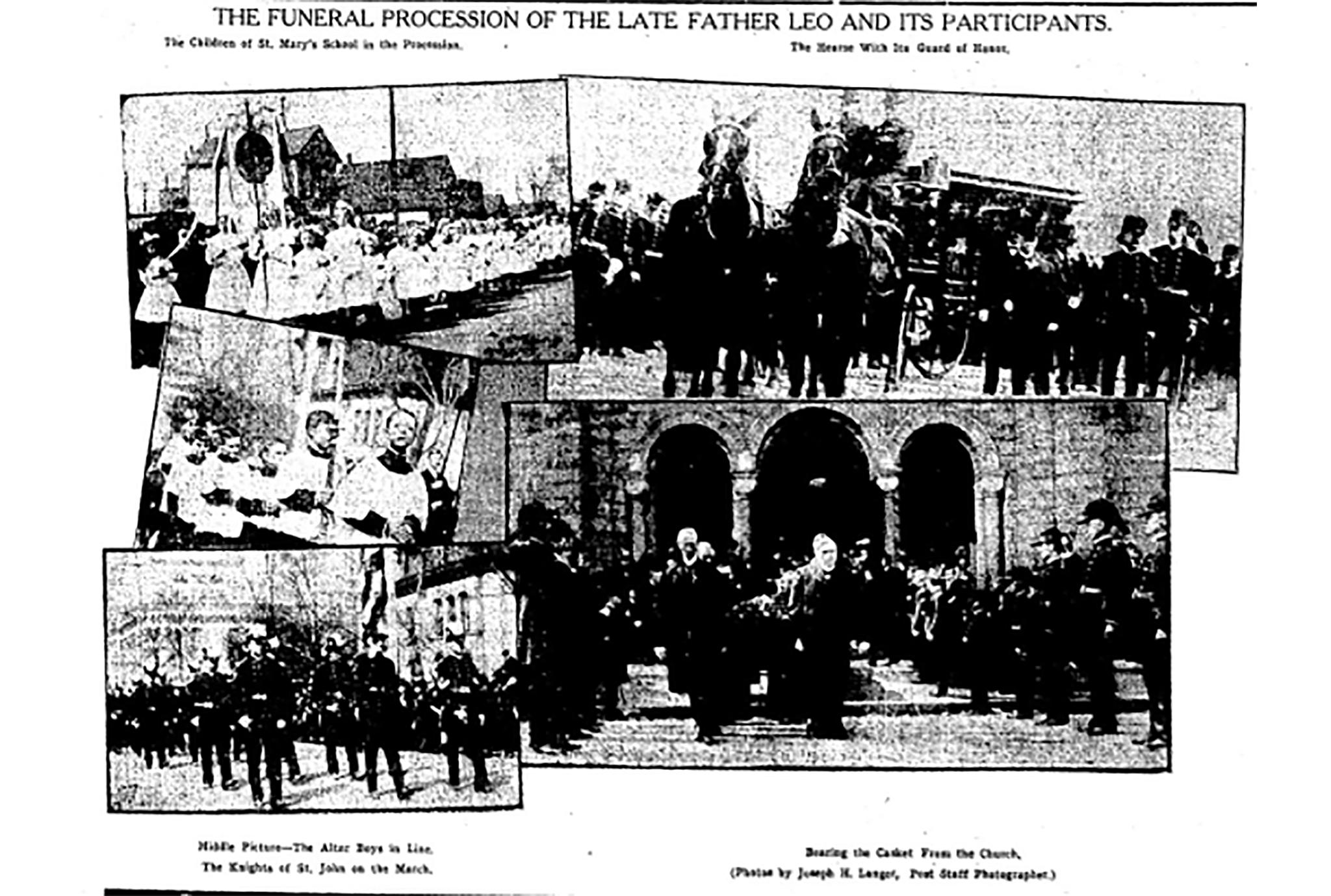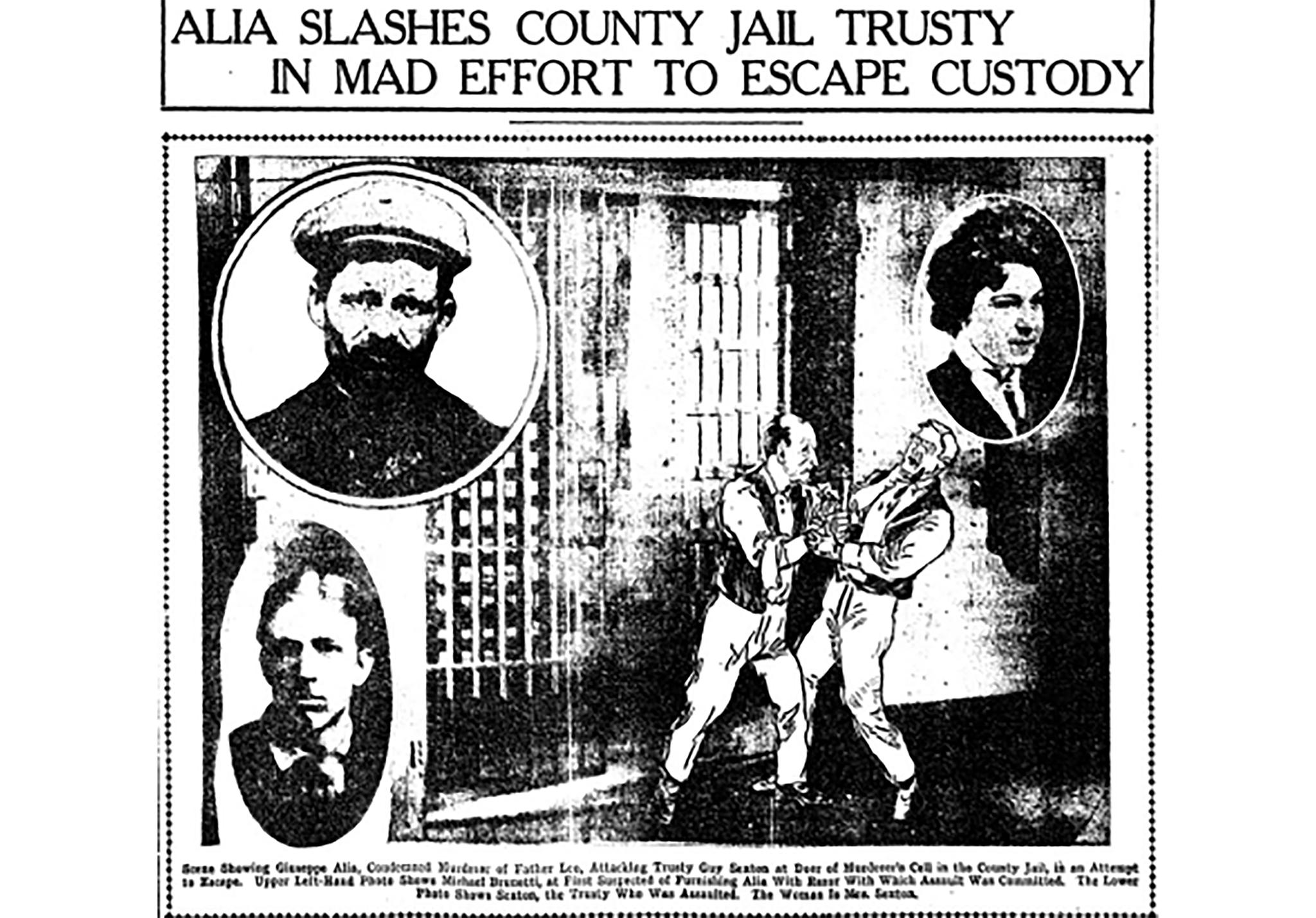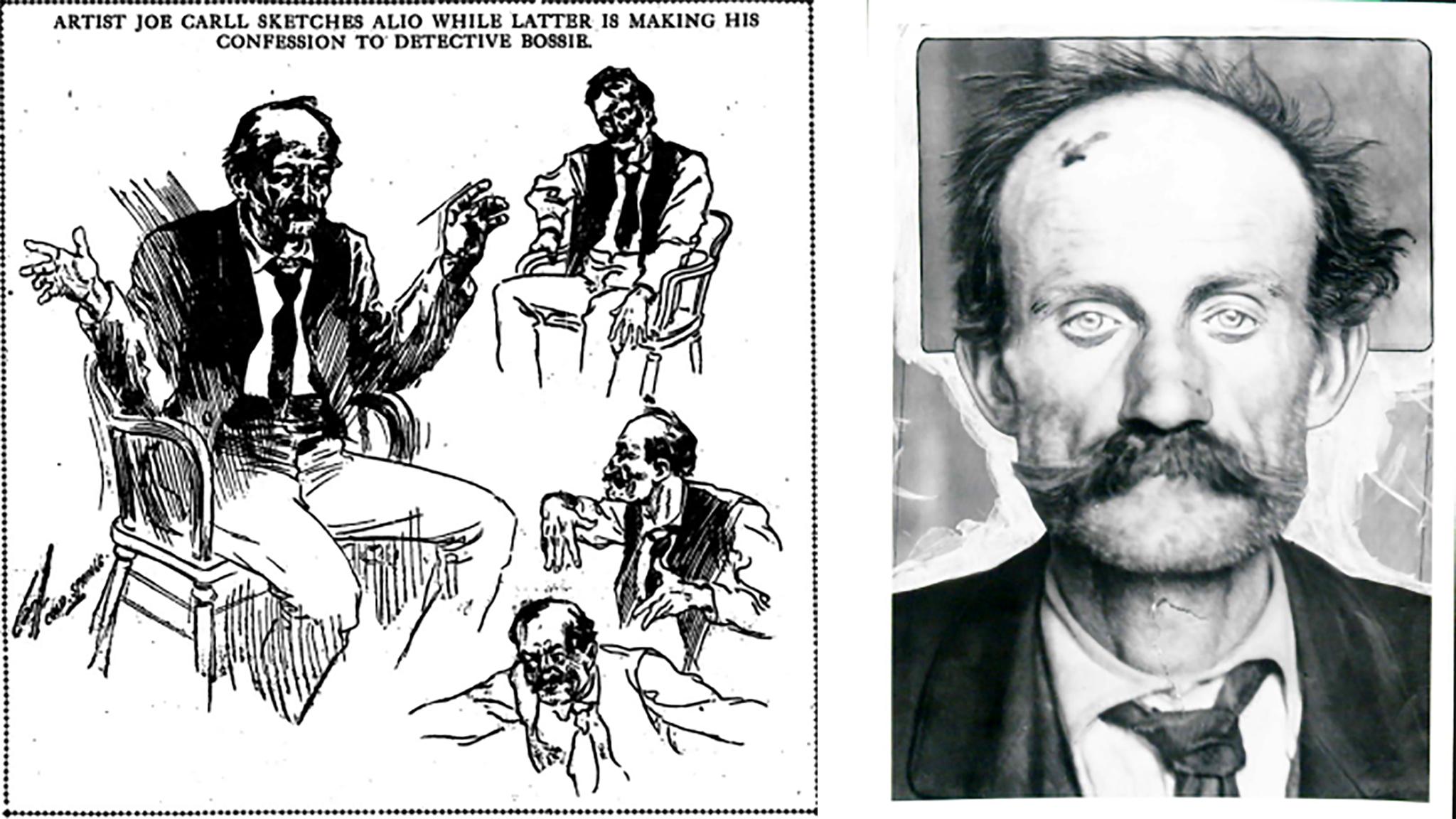Father Leo Heinrichs was murdered in 1908 as he passed out communion wafers, shot dead by Sicilian anarchist Giuseppe Alia inside St. Elizabeth of Hungary Church. The area around the crime scene would later become Denver's Auraria Campus. The fallout, and the larger context around this act of violence, is the subject of Alex Hernandez's latest dive into the Denver Public Library's archives.
As a librarian, Hernandez constantly finds himself sorting through random stories buried in old newspapers. For his latest blog post, he said he came across news of the murder as he and his colleague were answering a completely unrelated question from a customer. Hernandez couldn't help but dive deeper, collecting old articles into a clippings file about the crime.
"A moment after Father Leo placed the host on Alia's tongue, Alia pulled out a revolver. An altar boy called out to the priest, but in an instant, a bullet was fired into Father Heinrichs' chest," Hernandez wrote. "According to the account in the next day's Denver Post, Heinrichs tried to put down the ciborium holding the remaining hosts to prevent them from touching the ground, but almost immediately fell to the ground himself, dead from a severed aorta."

Officials transferred Alia to a jail in Colorado Springs, fearing the possibility of a lynch mob in Denver.
While Alia likely suffered from an undiagnosed mental illness, Hernandez wrote that Denverites of the era probably didn't appreciate that fact. Anti-Italian sentiment ran deep in the city's early days. About 15 years before Alia shot Father Heinrichs, "a big mob with little difficulty" forced their way into a Denver jail, grabbed another Italian man accused of murder and hung him over a city street.
"Denver was disgraced by a lynching on the night of Wednesday the 26th," the Castle Rock Journal reported in August of 1893. "It can be said however that the victim of the mob was guilty and richly deserved his fate."
White mobs also lynched Chinese and Black residents.
Hernandez said that the murder of Father Heinrichs added fuel to growing xenophobia among white residents, which helped the Ku Klux Klan reemerge in early 20th century Denver and dovetailed with legal crackdowns preventing immigrants from entering the country.

Like most of his blog entries, Hernandez said he sees parallels between this story of old Denver and today. The anarchist movement fit in with other social reforms, a budding labor movement and a rejection of America's gilded age, unsettling people happy with the status quo. He sees that in present-day activist movements, and said zealous demonization of people considered "other" is also reflected in today's discourse.
"Like after 9/11," he wrote, "a broad swath of people were painted with an even broader brush of contempt and distrust."
But Hernandez said these throughlines aren't what motivated his writing.
"It's a cuckoo-bananas story," he told us. "It just jumped out at me."

While Alia's lawyer attempted to save his client's life with an insanity plea, Alia was found fit to stand trial and sentenced to death. His case was likely not helped by the fact that he attempted to kill a Colorado Springs prison guard in an escape attempt soon after he was found guilty. Hernandez found that Alia did not know when he would be executed until the day it happened.
"According to the Denver Post, he ate his last meal after several readings of a letter from his wife and two of his children," Hernandez wrote. "Soon after, he was taken to the gallows room, hanged, and buried in a pine box in the prison cemetery. No hard evidence of Alia's participation in an organized, national anarchist plot was ever presented."
You can read the whole story at denverlibrary.org. Hernandez said anyone is welcome to ask Western History Collection staff about their curiosities. You can walk in and just start talking or use their online form to submit questions. Let us know if you do and find something interesting!
Correction: This story has been updated to reflect that Alia attempted to, but did not, kill a Colorado Springs prison guard. We also misspelled "cuckoo bananas."













